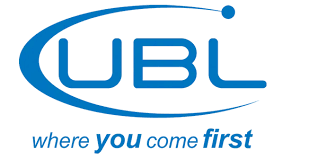F.P. Report
KARACHI: United Bank Limited (UBL) has partnered with AKS iQ, a leading Reg Tech company, to implement an advanced trade-based anti-money laundering (TBML) solution in line with the Bank’s commitment to innovation and digitization.
This high-tech solution will enable UBL to execute import and export transactions in a highly automated environment while conducting Anti-Money Laundering (AML) checks with greater flexibility, mitigate operational and compliance issues and facilitate data-driven decision-making across key departments, improving service standards, customer experience and reducing risk levels.
The partnership agreement was signed at UBL’s Head Office in Karachi by Mr. Shazad G. Dada, President & CEO, UBL and Mr. Yahya Ghaznavi, CEO, AKS iQ. Senior executives from both companies, including Mr. Sajid Hussain, Group Executive – Operations, Mr. Irfan Farooq Memon, Group Executive – Compliance, Mr. Muhammad Faisal Anwar, CIO, from UBL, and Mr. Omer Manya, CDO and Dr. Asim Imdad, CIO from AKS iQ, were also present at the signing ceremony.
At the event, Mr. Shazad G. Dada, President & CEO UBL said “As Pakistan’s most progressive and innovative bank, UBL is committed to implementing state-of-the-art technology systems to enhance customer experience and improve operations. This key partnership will enable the Bank to enhance the management of its existing risk portfolio, mitigate operational and compliance issues and facilitate data-driven decision-making across key departments.”
Mr. Yahya Ghaznavi, CEO of AKS iQ, shared his enthusiasm for the collaboration, saying, “We are proud to partner with UBL, a bank committed to innovation and automation. Our fully automated, AI-enabled trade-based AML solution will enhance efficiency and help achieve a paperless environment, contributing to a safer and sustainable financial ecosystem in the country. This partnership underscores AKS iQ’s dedication to offering cutting-edge trade automation and compliance solutions that enable financial institutions to efficiently navigate the evolving operational complexities and regulatory landscape.”







